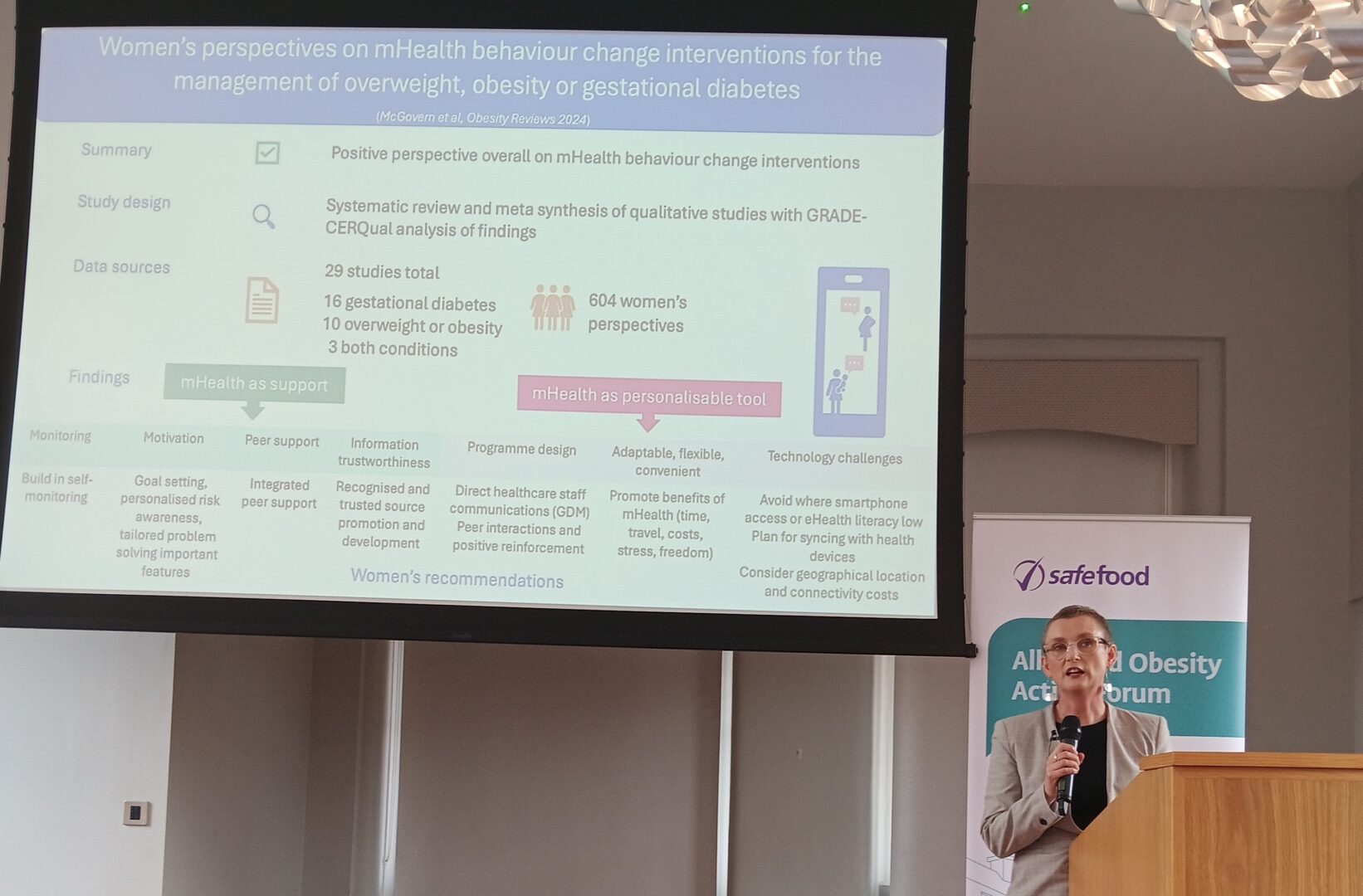The impact of obesity on fertility, pregnancy and beyond
The All-island Obesity Action Forum event “The impact of obesity on fertility, pregnancy and beyond” took place on 18th June 2024 and saw a series of international speakers present the latest research in supporting women living with obesity. This included sharing information about the Bump2Baby and Me trial.
In the first sessions of the day, Professor Nicola Heslehurst provided an overview of the impact of obesity on the health of women during pregnancy. She further explored how lower socioeconomic circumstances and coming from an ethnic minority can negatively impact outcomes. Food security was a key factor that appears to promote better health outcomes and her research team are exploring this at the moment. John Jordan, a person living with obesity, very eloquently described his journey through infertility and pregnancy right through to gastric banding. Dr Rosie Dawson presented her research work – the ‘Lift’ intervention, which was a co-designed project addressing preconception lifestyle change for women with obesity who had fertility issues.
Our Project Coordinator, Professor Sharleen O’Reilly presented after the break and showcased her research using mobile health technology, such as smartphones, to promote positive health outcomes in women living with obesity or overweight. Her research group recently published a systematic review that showed women saw mHealth interventions positively and used it to support and personalise their health behaviour change. She then talked about the Bump2Baby and Me trial which showed that roughly one in two women screened in routine care were at risk of developing gestational diabetes and half of the women eligible joined the study. Once the women were enrolled, they had excellent retention at one year postpartum. The primary outcomes will be available later this year.

After Bump2Baby and Me, Sharleen presented the Latch-On study. Latch-On was a trial exploring whether providing greater support to women with overweight or obesity would improve breastfeeding outcomes. The study results were published earlier this year and showed no difference between groups. However, the breastfeeding rates in both groups were excellent and the control arm accessed more private lactation consultant support because it seems their self-efficacy was primed by taking part in the study.
The last item that Sharleen covered was the FIGO Pregnancy Passport, which is designed to help women advocate for their own long-term health through monitoring their chronic disease risk and seeking support from their health services. The FIGO Nutrition Checklist is another tool linked to the Pregnancy Passport that can be used to support dietary change in women, which is available online and in 11 languages.
The Forum ended with Professor Michelle McKinley presenting data on the Supporting MumS (SMS) Study that looks to help women postpartum to manage their weight. The full scale trial has just completed across the UK and results are expected later on this year.
The event was really well received and attended by about 150 people online and about 50 in person. It is hoped that this will promote further dialogue and funding for support for women living with obesity to have healthy pregnancies and families going forward.
A full recording of the event is available on You Tube.
